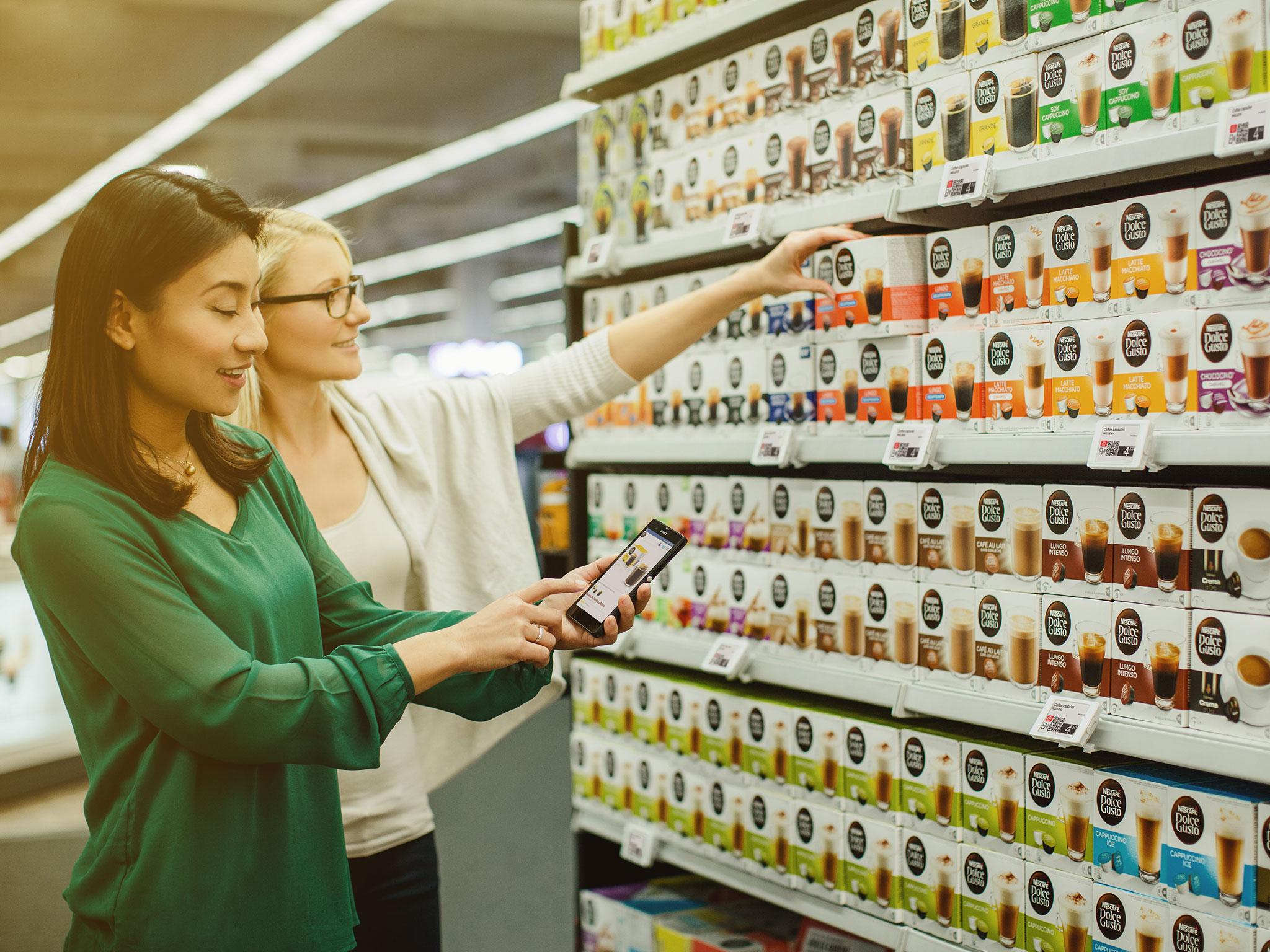SES-imagotag: The company helping supermarkets to reduce food waste and stop customer rip off
Many of the best retailers can only guarantee that one in 10 of their products are priced correctly on shelves

Your support helps us to tell the story
From reproductive rights to climate change to Big Tech, The Independent is on the ground when the story is developing. Whether it's investigating the financials of Elon Musk's pro-Trump PAC or producing our latest documentary, 'The A Word', which shines a light on the American women fighting for reproductive rights, we know how important it is to parse out the facts from the messaging.
At such a critical moment in US history, we need reporters on the ground. Your donation allows us to keep sending journalists to speak to both sides of the story.
The Independent is trusted by Americans across the entire political spectrum. And unlike many other quality news outlets, we choose not to lock Americans out of our reporting and analysis with paywalls. We believe quality journalism should be available to everyone, paid for by those who can afford it.
Your support makes all the difference.News in February that Tesco had overcharged over two-thirds of its customers by advertising out-of-date promotions, showed that traditional paper price labels are not only time consuming and often inaccurate but can also do a lot of damage.
At the time, an investigation found that Tesco was offering multi-buy deals months after the deductions had become invalid, putting Britian’s biggest supermarket in an awkward position.
But while customers might have fumed at the oversight, Roy Horgan, the chief executive of a company called SES-imagotag for the UK and Ireland, might have seen it as an opportunity.
The entrepreneur says that many of the best retailers can only guarantee that one in 10 of their products are priced correctly on shelves, which means that millions of customers are putting items in their baskets thinking that they are one price only to find that they’re charged another at the till.
Using electronic shelf labels, or ESLs, SES-imagotag is now offering retailers the ability to wirelessly update information on their labels - including price and stock availability - quickly and efficiently, without the need to print paper tags or to deploy several employees to change them manually.
It might sounds like a small efficiency, but it could be crucial in the breakneck world of retailer competition, were discounters are quickly gobbling up market share.
It gives established players, like Tesco, the ability to compete with budget stores Aldi and Lidl as well as online retail giant Amazon by offering the same “dynamic prices”, says Mr Horgan.
Considering the size of Tesco it may be changing millions of label per week, meaning there are obvious saving opportunities and the time-saved could be redeployed in better customer service.
He says that the company is growing rapidly on the French stock exchange and SES’s technology is already used across 54 countries - including France, Germany, Australia and Japan.
In the UK, however, SES has faced challenges, largely in the form of integrating that retail technology and the costs involved.
“We have never heard retailers say that this is a bad idea, not once,” he says. But at the same time, he says, retailers have told him that it’s hard to make a business case for the new technology because there’s no official fining structure to misleading prices.
Retailers have a lot of capital, but it’s nonetheless hard to make a case for deploying that cash on something that is non-essential. As a result, early adapters of the technology are mostly just the retailers that are particularly innovative, but among those that have taken to it, reception seems to be positive.
SES is working with SPAR across stores in London, Wales, the North and West of England. The technology has helped stores cut waste reduction by over 30 per cent in five weeks and get to 100 per cent pricing accuracy.
The company is also trialling the technology in Marks & Spencer stores with the aim of assisting operational efficiencies, waste reduction, customer engagement and – perhaps most importantly for shoppers – price integrity.
According to the company`s website the most notable impact at M&S so far is a “morale boost” within the store. Staff have praised the replacement of paper tickets. Maintaining them had been tedious and cutting out the process is giving them more time to tend to customers’ needs.
Mr Horgan said that generally speaking, the UK has tended to be a trailblazer for smart technology, but when it comes to digital pricing it’s clearly lagged behind countries like France, Germany and the Nordics where digital pricing has become the norm.
“Thankfully the tide is turning, with more and more retailers realising benefits of going digital. They can now apply discounts and promotions instantly, and guarantee their customers will pay at the same price at the till as they saw on the shelf,” he added.
Earlier this month the Institute of Customer Service published a report showing that UK shoppers would pay an average of 17 per cent more for great customer service, despite rising prices caused by the Brexit-hit pound. That could be one argument for Tesco and its peers to think about listening to Mr Horgan and at least giving technology like that provided by SES a shot.
“One retailer told me that retailers in general never like to be first but they never want to be last either,” says Mr Horgan says.
He says that SES’s technology is already being used in 12,000 stores proving that the company is capable of setting the price right. Based on that, perhaps it’s time for the big players to realise that if they wait much longer, they will, indeed, risk being last.
Join our commenting forum
Join thought-provoking conversations, follow other Independent readers and see their replies
Comments